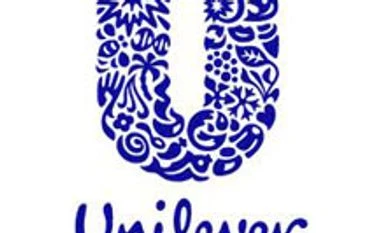The rupee’s decline against the dollar in the past couple of months came as a blessing for Anglo-Dutch consumer goods giant Unilever, which concluded its massive share buyback offer for Indian arm Hindustan Unilever on Thursday.
The weaker rupee made the buyback cheaper for Unilever, as the London-headquartered company would have to shell out only about $4.85 billion by the close of the issue, against the $5.42 billion set aside earlier during the announcement.
A back-of-the-envelope calculation shows Unilever’s raising of stake in HUL from 52.5 per cent to 67.3 per cent would cost it $3.2 billion, against $3.6 billion at the dollar-rupee exchange rate of 53.8 on the day the open offer was announced. That amounts to savings of Rs 2,400 crore ($400 million).
The rupee fell about 12 per cent against the dollar, from 53.81 on April 30 to 60.13 on Thursday, when India’s largest voluntary open offer closed. Unilever could take advantage of the falling rupee because the rules of the Securities and Exchange Board of India require companies that announce open offers to bring in upfront only 10 per cent of the total amount of the issue. The remaining 90 per cent has to be brought in only on subscription.
Unilever brought in about $500 million (Rs 2,920 crore) just ahead of the start of the offer on June 21.
A source with knowledge of the development said Unilever got in only 10 per cent of the issue size, and the rest would come once bankers arrived at the final acceptance after completing the verification of tendered shares.
The source added the savings of Unilever would be capped if it had hedged the position in the market.
An email questionnaire to the Unilever spokesperson remained unanswered till the time of going to press.
The world’s leading home and personal care products maker has said the payment for shares tendered would be completed before July 11. At on Friday’s exchange rate, Unilever has to bring in a further $2.7 billion to pay investors. Public shareholders tendered shares amounting to 66 per cent of the Rs 29,220-crore open offer.
Unilever would have to fork out around Rs 19,200 crore. The acceptance ratio for the open offer would be 100 per cent, as the issue was undersubscribed.
The weaker rupee made the buyback cheaper for Unilever, as the London-headquartered company would have to shell out only about $4.85 billion by the close of the issue, against the $5.42 billion set aside earlier during the announcement.
A back-of-the-envelope calculation shows Unilever’s raising of stake in HUL from 52.5 per cent to 67.3 per cent would cost it $3.2 billion, against $3.6 billion at the dollar-rupee exchange rate of 53.8 on the day the open offer was announced. That amounts to savings of Rs 2,400 crore ($400 million).
The rupee fell about 12 per cent against the dollar, from 53.81 on April 30 to 60.13 on Thursday, when India’s largest voluntary open offer closed. Unilever could take advantage of the falling rupee because the rules of the Securities and Exchange Board of India require companies that announce open offers to bring in upfront only 10 per cent of the total amount of the issue. The remaining 90 per cent has to be brought in only on subscription.
Unilever brought in about $500 million (Rs 2,920 crore) just ahead of the start of the offer on June 21.
A source with knowledge of the development said Unilever got in only 10 per cent of the issue size, and the rest would come once bankers arrived at the final acceptance after completing the verification of tendered shares.
The source added the savings of Unilever would be capped if it had hedged the position in the market.
An email questionnaire to the Unilever spokesperson remained unanswered till the time of going to press.
The world’s leading home and personal care products maker has said the payment for shares tendered would be completed before July 11. At on Friday’s exchange rate, Unilever has to bring in a further $2.7 billion to pay investors. Public shareholders tendered shares amounting to 66 per cent of the Rs 29,220-crore open offer.
Unilever would have to fork out around Rs 19,200 crore. The acceptance ratio for the open offer would be 100 per cent, as the issue was undersubscribed.
The cost of capital for these parent foreign firms, mostly based out of the US, Europe or Japan, where rates are near-record-low levels, is attractive when compared to the earnings yield clocked by their Indian arms.
)